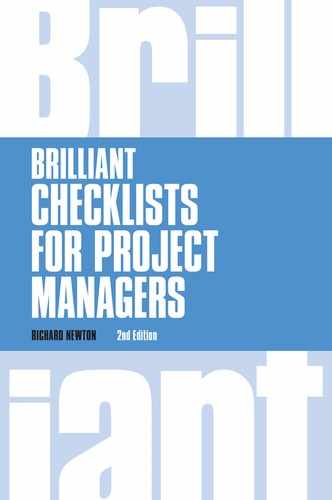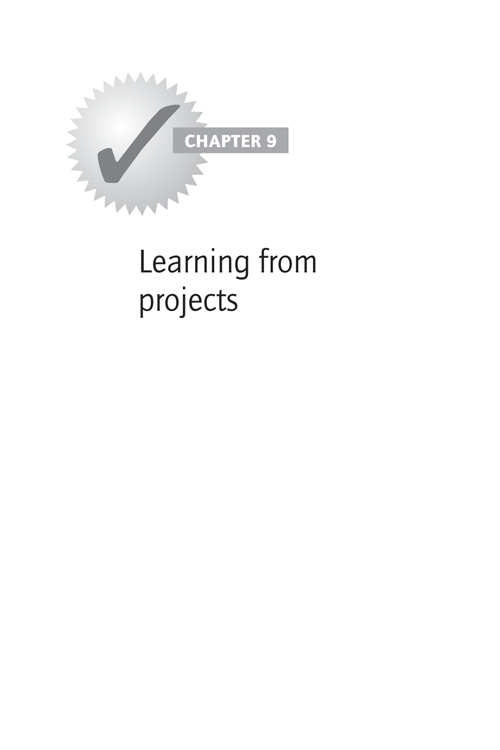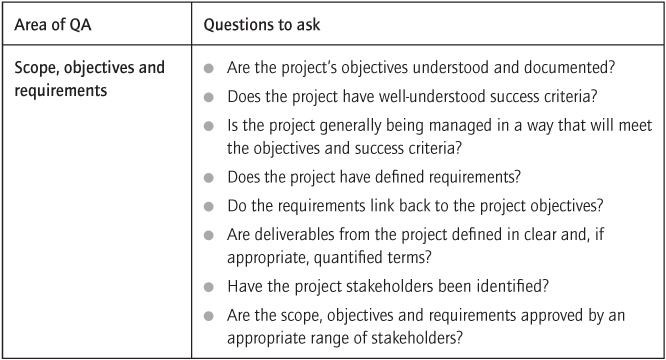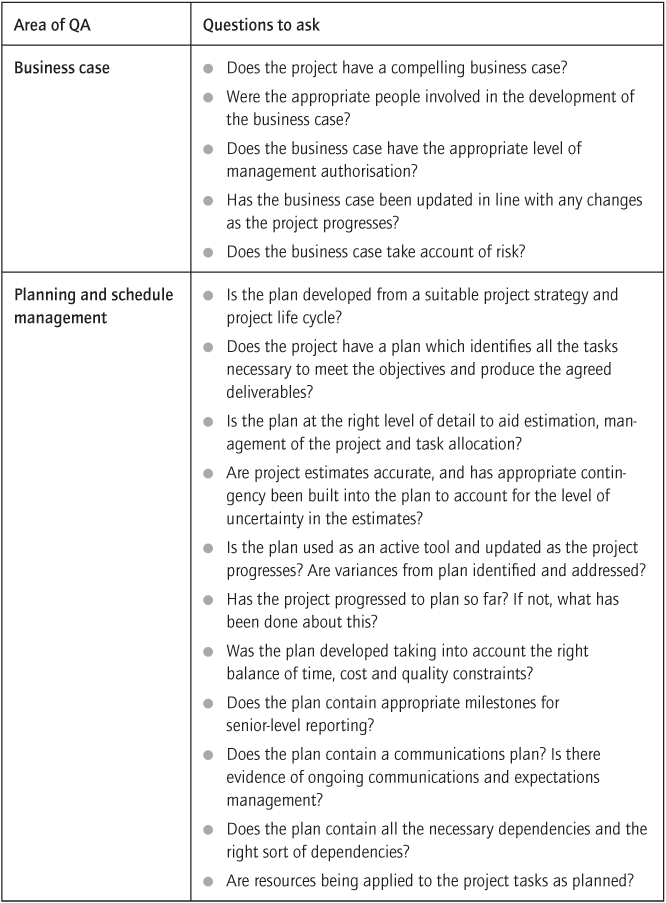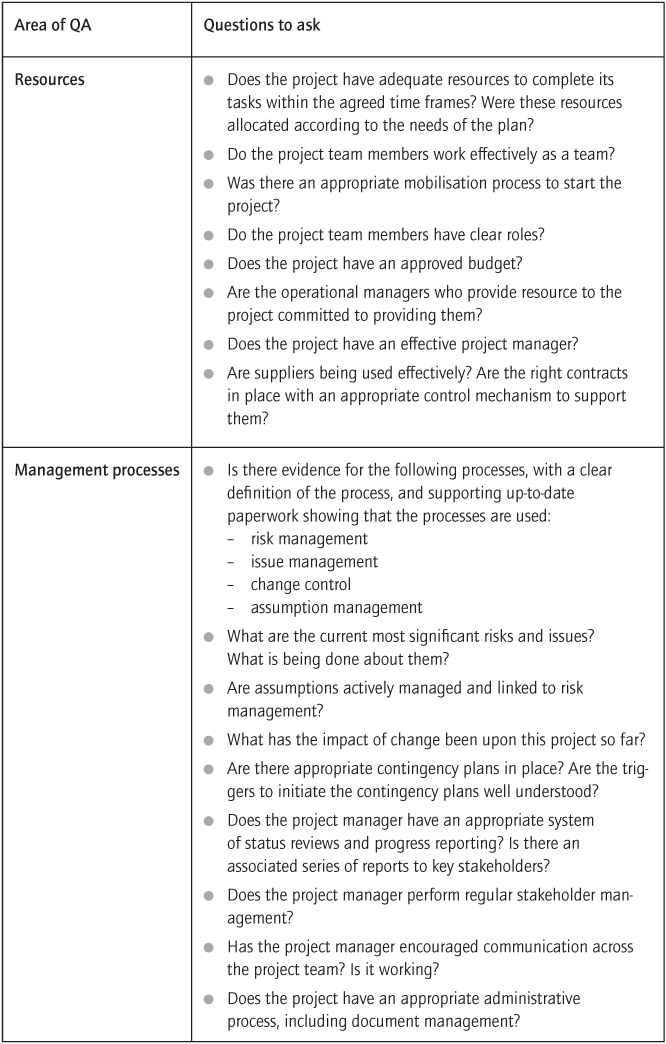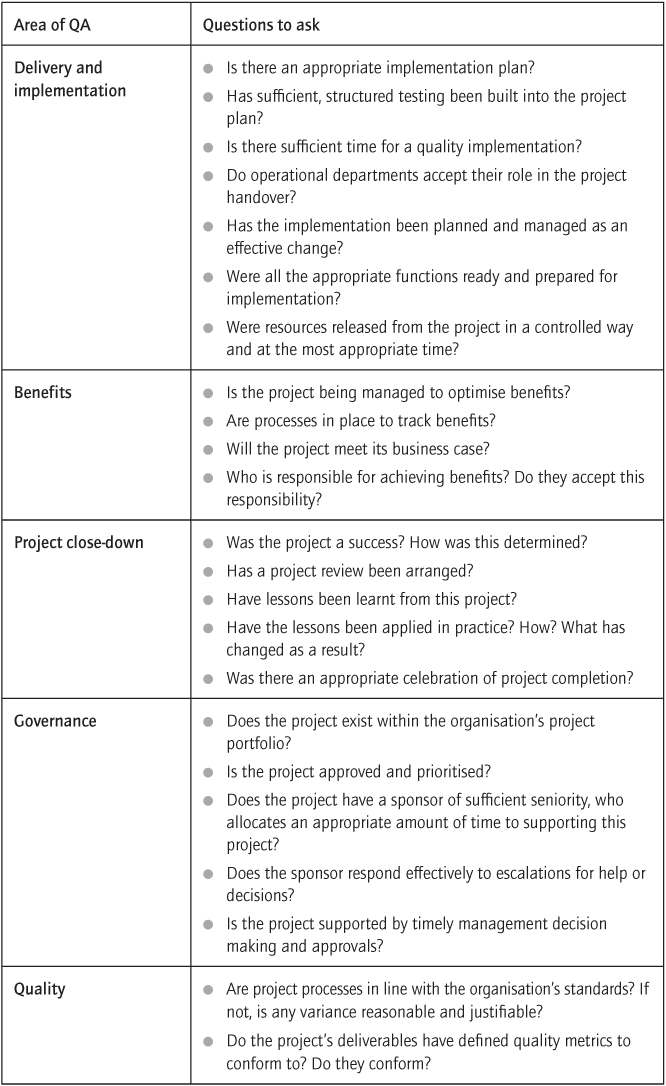Reviewing a completed project provides organisations with an excellent chance to learn. In the pressure to get on, there is often a temptation to miss out a formal review. This is a waste of a valuable opportunity. This chapter also includes a project quality assurance (QA) checklist which can be used at any stage in a project.
Determining if a project is successful or not
The basis for learning is to understand whether something is successful or not – if you do not know this you cannot draw useful conclusions. Many factors and different viewpoints have to be taken into account. Determining if a project is successful should be linked to the success criteria for the project, but expectations change as projects progress and success criteria are not always adapted in line with changing expectations.
Far from being an objective fact, determining success is often a subjective judgement. Considerations in determining if a project was successful or not are:
- Review the tangible success criteria – have they been met, and does it appear as if they will continue to be met?
- Were the success criteria met within the constraints in terms of scope, time and money put upon the project?
- Review the intangible success criteria – in discussion with the project sponsor: do you think they have been met? Is this consistent with other people’s views?
- Do the project sponsor, project manager and project team feel the project was a success?
- Do the stakeholders feel the project was a success?
- Has anything else been gained from this project? Has the organisation’s ability to deliver projects improved? Has any other improvement resulted from this project?
Performing a review of a completed project
Project reviews are the basis for improvement in project performance. Individuals learn from working on projects, but it is through discussion and action that learning is maximised. All projects, from the best to the worst-performing, provide valuable opportunities to learn.
Depending on the scale of the project, there may be one or several reviews. The review should be held soon enough after the project that it is fresh in people’s minds, but long enough afterwards to understand if benefits have been achieved. If there is a considerable period between achieving benefits and completion of the project, hold two separate reviews – one to review the project and the other to review benefits.
Steps to performing a project review are:
- Identify the audience for the project review, set up a time and location and invite participants.
- Before running the meeting, review the checklist on page 142 – and focus on real learning output. Think about how you will use the outcome from this project review, so it is not just a talking shop.
- Introduce the review. Make sure everyone knows this is not a performance review or an opportunity to point fingers. It is a session to learn for future projects.
- Start with a freeform debate on the project and let people express views on their experiences and feelings about the project. It is not necessary to record this debate. This enables people to get things off their chests. Try to ensure that everyone present expresses an opinion. Keep this debate to 30 minutes to 1 hour maximum.
- Have a short coffee break. Inform everyone that, on their return, they will start a more structured review process.
- Review whether the project was a success or not, and in what ways. Differences in opinions on success are often the basis of good learning points. Try to make this as factual as possible.
- Was the team’s view of how successful the project was different from the stakeholders’?
- What can be learnt from this?
- Go into a more structured set of questions:
- What was not done during this change that you should do in future? (Start doing this in future.)
- What went badly during this change that you should make sure you do not do in future? (Stop doing this in future.)
- What went well during this change that you should make sure you always do in future? (Continue doing this in future.)
- Is there anything else you have learnt that is worth remembering for next time?
- Document the findings from the review. For every learning point assign a tangible action, with an action owner to ensure that it is carried forward.
Ensuring lessons are learnt
A common problem with project reviews is that they do not result in changes in behaviour or approach, so no effective learning takes place. Making sure that learning happens needs a conscious effort on behalf of project reviewers. Some questions to prompt/encourage people to learn lessons from a project are as follows:
- How will you ensure you start, stop and continue the points you note from the project review?
- How will you ensure that this learning is shared widely within the organisation, so that not only you and the project team learn, but the whole organisation does?
- Do you need to adapt or enhance any of the processes, procedures or methods used for project management in the organisation? If so, how will you communicate these to the whole organisation?
- Do you need to adapt or enhance any of the roles and responsibilities used in projects? If so, how will you do this and ensure it happens next time?
- Would your project be better supported by new systems and tools? If so, what are they and how will you ensure your organisation has access to them?
- Did anyone perform particularly well on this project? How will you ensure that this individual is rewarded and encouraged to repeat this behaviour on the next project and encourage it in others? How can you use this person’s skills to teach others?
- Who is going to perform all the actions identified, and by when? Who will ensure the action is done? The actions may relate to future projects, changing existing processes or tools, or behaviours of individuals.
Improving an organisation’s project performance
Improving project performance is dependent on a wide range of factors beyond simply performing project reviews. Key points are to:
- Develop a culture in the project management team(s) which values enhancing skills and learning new approaches.
- Perform project reviews and ensure that learning is shared.
- Be clear about the competencies and behaviours required by project managers.
- Have role models who are well regarded and show the behaviours and performance expected of project managers.
- Tailor the organisation’s performance management systems so that they encourage the behaviour you want from project managers.
- Provide adequate rewards and career structure to motivate project managers to perform.
- Build a team with the right skills, competencies and culture to meet the needs of the organisation.
- Develop and implement the right project management tools and infrastructure, optimised for the scale and type of projects required.
- Constantly challenge and enhance project checklists and processes as a result of project experiences.
- Provide access to training, so that project managers can enhance their skills.
- Provide the right range and volume of staff for projects.
- Build a management culture that values project management and project managers, and acts in a way that is consistent with the needs of projects.
- Study appropriate organisations and benchmark project management performance against them. Constantly review what you can learn from other situations.
- Ensure that good governance processes exist, so not only are projects done well, but the right projects are chosen to be delivered, and the right decisions are made about projects.
Performing project or programme QA
A project quality assurance (QA) is a detailed review of a project or programme. This is longer than a project status review session. It can be done at any stage of a project or programme. At the end of the QA you should understand the status of the project, the quality of the project management process and the abilities of the project manager, and be able to identify learning opportunities and improvements to be made. A good QA will detect current issues, future risks, and information pertinent to other projects.
The following table provides an extensive list of questions. It is not expected that all of these will be asked at a QA session, but a sample may be selected depending on the status and phase of the project. An effective QA not only asks questions, but also seeks evidence for the answers.
